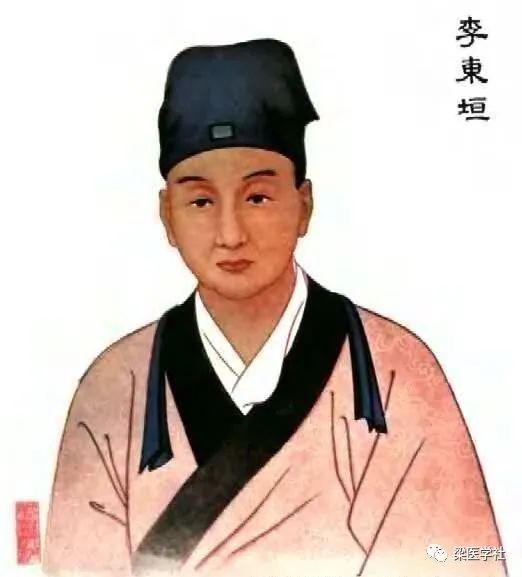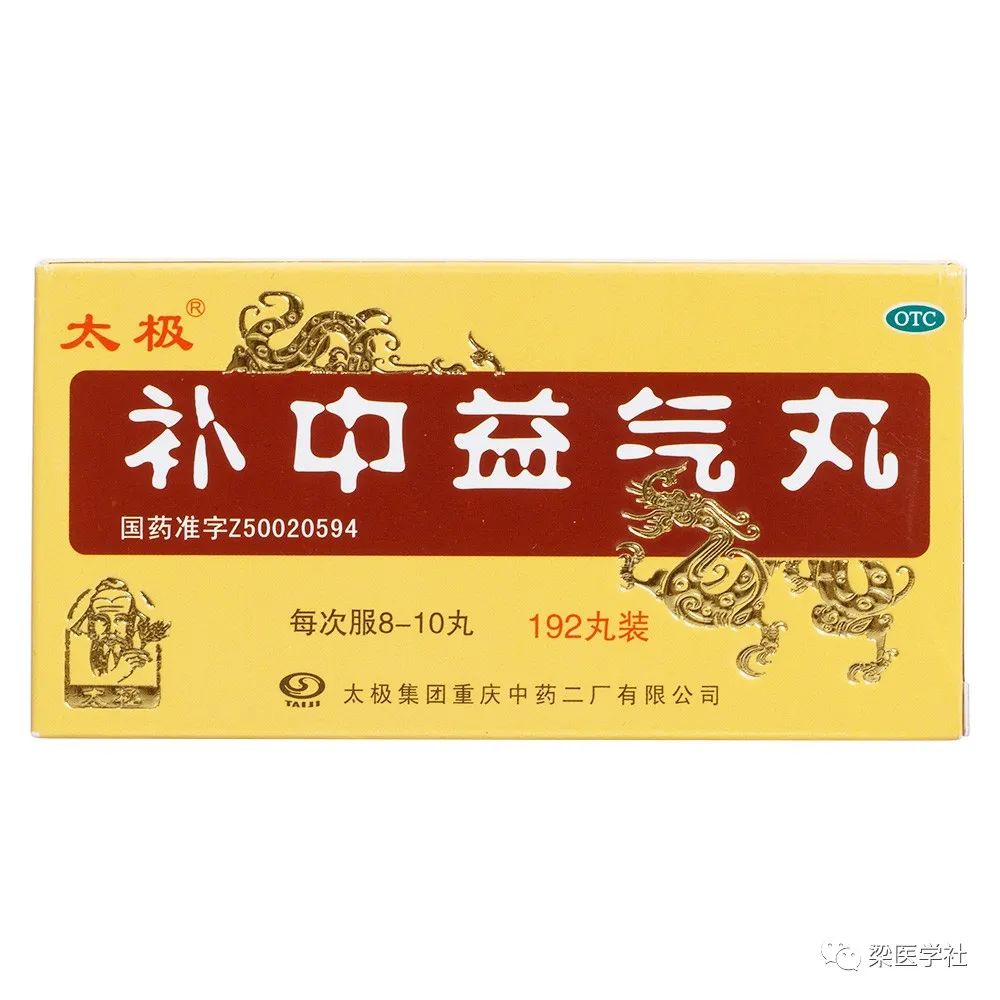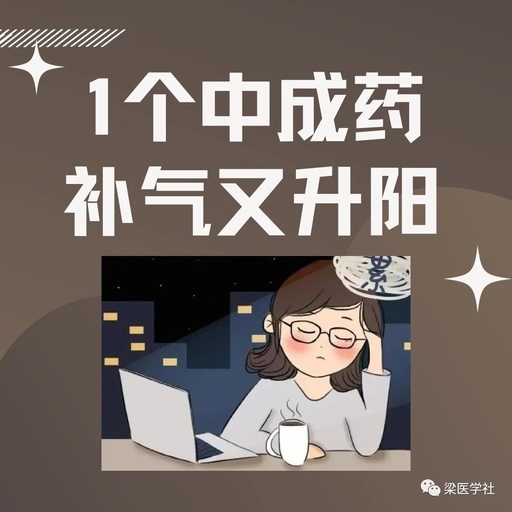Recently, many friends have left me messages saying they feel physically weak, always fatigued and lacking energy, with poor resistance. They ask if there are any simple and effective Chinese patent medicines to help regulate their bodies.There is a Chinese patent medicine called Buzhong Yiqi Wan (补中益气丸), which is particularly suitable for those with Qi deficiency.
This medicine is recorded in the medical classic “Pi Wei Lun” (脾胃论) by Li Dongyuan (李东垣), one of the four great masters of the Jin and Yuan dynasties, as Buzhong Yiqi Decoction (补中益气汤).

Li Dongyuan believed in the theory from the Huangdi Neijing (黄帝内经) that emphasizes “nourishing the stomach Qi” as fundamental throughout the four seasons, stating that “internal injury to the spleen and stomach leads to all diseases.” His treatment approach emphasizes “regulating the spleen and stomach, and uplifting the middle Qi.” Due to his adept use of warming and tonifying methods to regulate the spleen and stomach, and since the spleen and stomach belong to the Earth element, later generations referred to his school of thought as the “Earth Supplementation School” (补土派).The Buzhong Yiqi Decoction is a classic formula established by Li Dongyuan and can be considered a representative formula of the Earth Supplementation School, commonly used for those with insufficient middle Qi.What are the manifestations of insufficient middle Qi?Middle Qi refers to the Qi of the spleen and stomach. When it is insufficient, it indicates weakness in the spleen and stomach Qi, leading to poor transformation and transportation of food and fluids.What happens next?Then one becomes ill.The saying goes, “With sufficient middle Qi, all diseases are eliminated; with deficient middle Qi, all evils can invade.”
The primary characteristic of spleen Qi deficiency is laziness. When the spleen is deficient, it governs the four limbs, leading to a sluggish feeling, lack of energy, and a tendency to lean against things. Walking becomes heavy and laborious.
The second point is physical weakness. A gust of wind can cause a sneeze, leading to illness that requires several days of rest to recover.
The third manifestation can be abdominal distension and diarrhea. Abdominal distension occurs because the spleen struggles to transform food, while diarrhea results from the inability to retain what has been ingested, causing it to pass through too quickly.
The “middle” in Buzhong Yiqi Wan actually refers to the middle jiao, which encompasses the spleen and stomach; thus, “supplementing the middle” means tonifying the spleen and stomach.
While we say that Buzhong Yiqi Wan is a Qi tonifying medicine, this description is not entirely comprehensive; it not only tonifies Qi but also uplifts it.When is uplifting Qi necessary?
In cases of severe Qi deficiency. The Neijing states, “What sinks must be uplifted.” Buzhong Yiqi Wan can not only replenish Qi but also elevate it.
Qi is meant to rise; how do we understand this?
For example, we often see colorful helium balloons in parks or on the streets. These balloons must be held tightly; if not, they may float away. A characteristic of these balloons is that they can only rise when they are filled with enough gas.Thus, the premise for Qi to rise is that it must be sufficient.
If Qi deficiency is severe, and there is too little Qi, the helium balloon cannot rise high and may even fall to the ground; this is what we call Qi sinking.Qi deficiency does not necessarily mean Qi sinking, but Qi sinking often accompanies Qi deficiency.
What are the manifestations of Qi sinking?
“Qi” supports our appearance and sustains the internal organs.When Qi sinks, it often presents as: lower abdominal heaviness, chronic diarrhea, as well as conditions like gastric prolapse, eyelid droop, mouth corner droop, and uterine prolapse. This indicates a shift from the intangible Qi to tangible organ systems, resulting in changes in the body.
In summary, the entire body feels a sense of sagging because Qi deficiency leads to sinking, making it unable to support the internal organs and body, resulting in extreme fatigue, preferring to sit rather than stand, and lying down instead of sitting, leading to a lack of vitality.
When you experience these symptoms, it indicates that your Qi deficiency has become quite severe, and at this point, Buzhong Yiqi Wan is needed.
 Ingredients: 18g Huang Qi (黄芪, Astragalus), 6g Ren Shen (人参, Ginseng), 9g Bai Zhu (白术, Atractylodes), 6g Sheng Ma (升麻, Cimicifuga), 6g Chai Hu (柴胡, Bupleurum), 6g Chen Pi (陈皮, Dried Tangerine Peel), 3g Dang Gui (当归, Angelica), 9g Zhi Gan Cao (炙甘草, Honey-fried Licorice).This has now been made into a Chinese patent medicine, available at regular pharmacies, and is convenient to take, called Buzhong Yiqi Wan.Next, Dr. Liang will analyze this formula.Huang Qi: Known as the “leader in Qi tonification.” Huang Qi is warm in nature and sweet in flavor, indicating its tonifying properties. The herb is predominantly yellow, with a white outer layer, suggesting that it can tonify both spleen and lung Qi.Ren Shen: Also a highly representative Qi tonifying herb in TCM, it not only tonifies spleen Qi but also restores original Qi, which can be life-saving in critical moments.Bai Zhu: Benefits Qi and strengthens the spleen. Qi deficiency arises from spleen deficiency, as the spleen is the source of Qi and blood production. Ren Shen and Huang Qi can tonify Qi, and with Bai Zhu, these three herbs together can fully replenish Qi.Chen Pi: Specializes in regulating Qi, ensuring that Qi within the body remains in a state of smooth flow.Sheng Ma: Provides external force; as the name suggests, Sheng Ma offers an uplifting force, meaning it pulls Qi upwards. When Qi is sinking, Sheng Ma lifts it back up.Chai Hu: This herb is often mentioned in formulas for soothing the liver.
Ingredients: 18g Huang Qi (黄芪, Astragalus), 6g Ren Shen (人参, Ginseng), 9g Bai Zhu (白术, Atractylodes), 6g Sheng Ma (升麻, Cimicifuga), 6g Chai Hu (柴胡, Bupleurum), 6g Chen Pi (陈皮, Dried Tangerine Peel), 3g Dang Gui (当归, Angelica), 9g Zhi Gan Cao (炙甘草, Honey-fried Licorice).This has now been made into a Chinese patent medicine, available at regular pharmacies, and is convenient to take, called Buzhong Yiqi Wan.Next, Dr. Liang will analyze this formula.Huang Qi: Known as the “leader in Qi tonification.” Huang Qi is warm in nature and sweet in flavor, indicating its tonifying properties. The herb is predominantly yellow, with a white outer layer, suggesting that it can tonify both spleen and lung Qi.Ren Shen: Also a highly representative Qi tonifying herb in TCM, it not only tonifies spleen Qi but also restores original Qi, which can be life-saving in critical moments.Bai Zhu: Benefits Qi and strengthens the spleen. Qi deficiency arises from spleen deficiency, as the spleen is the source of Qi and blood production. Ren Shen and Huang Qi can tonify Qi, and with Bai Zhu, these three herbs together can fully replenish Qi.Chen Pi: Specializes in regulating Qi, ensuring that Qi within the body remains in a state of smooth flow.Sheng Ma: Provides external force; as the name suggests, Sheng Ma offers an uplifting force, meaning it pulls Qi upwards. When Qi is sinking, Sheng Ma lifts it back up.Chai Hu: This herb is often mentioned in formulas for soothing the liver.
Why soothe the liver?Because liver Qi can become stagnant and fail to rise.Chai Hu helps liver Qi to ascend, restoring its natural upward movement.Li Dongyuan once said: “Chai Hu elevates and can guide the middle Qi upwards.”Chai Hu directs Qi to the sides of the ribs, while Sheng Ma takes care of the upward lifting, like a relay race where Chai Hu and Sheng Ma work together to enhance the uplifting force.
Dang Gui: Tonifies blood; Qi and blood are interrelated, which is easy to understand.The entire formula works together to tonify the middle and uplift, ensuring that middle Qi is strengthened and clear Yang is elevated, thus achieving the effects of tonifying the middle, benefiting Qi, and uplifting the sinking Qi, making it effective for treating spleen and stomach weakness and middle Qi sinking.Older adults can keep Buzhong Yiqi Wan on hand.As trees age, they shed leaves; as people age, their organs tend to sag. Taking this pill can be beneficial.This is not just my opinion; it is said by Master Lu Guangxin, a national TCM master. He believes that for older adults, having the “four essentials” is generally sufficient.Buzhong Yiqi Wan and Jiawei Xiaoyao Wan (加味逍遥丸), one tonifies Qi, the other combats depression. Taking them twice a week or even daily is fine. For colds, diarrhea, or skin allergies, Fangfeng Tongsheng Wan (防风通圣丸) can be used. Additionally, keeping Liuwu Di Huang Wan (六味地黄丸) on hand completes the set.These four medicines are all high-value Chinese patent medicines, widely applicable and effective, and can be kept on hand without resorting to unclear “health products”.Finally, let’s discuss the contraindications for this medicine:Even the best medicine has contraindications.1. Buzhong Yiqi Wan is not suitable for those with Yin deficiency and fever, colds with fever, overeating, or abdominal distension; those with damp-heat diarrhea should also avoid it. In these cases, it is best to refrain from using Buzhong Yiqi Wan to avoid exacerbating the condition. Patients with hypertension should also use it under medical guidance.2. Avoid taking it simultaneously with cold medications, Rhizoma et Radix of Rheum or its preparations.3. If symptoms such as headache, dizziness, double vision, skin rash, facial redness, or rising blood pressure occur during medication, discontinue use immediately.
This concludes our content for this issue. If you find this article helpful, please don’t forget to click the “See” button at the bottom right of the article or share it with your friends. See you next time!
Warm reminder: TCM emphasizes “one formula for each person”; this article is for learning reference only. The combinations and formulas mentioned should be used under the guidance of a TCM practitioner for proper diagnosis and application, and should not be attempted blindly.

